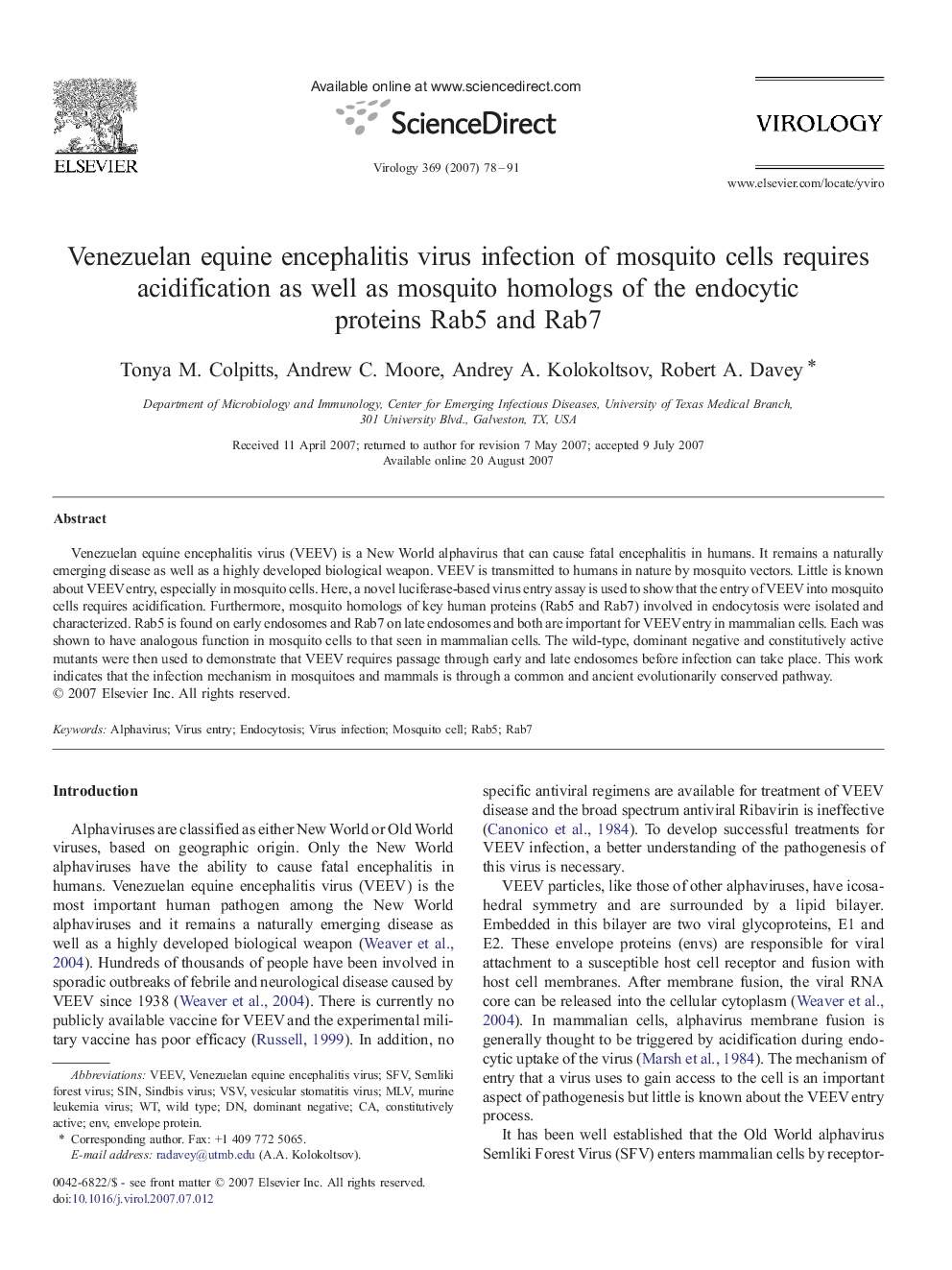| کد مقاله | کد نشریه | سال انتشار | مقاله انگلیسی | نسخه تمام متن |
|---|---|---|---|---|
| 3426647 | 1227339 | 2007 | 14 صفحه PDF | دانلود رایگان |

Venezuelan equine encephalitis virus (VEEV) is a New World alphavirus that can cause fatal encephalitis in humans. It remains a naturally emerging disease as well as a highly developed biological weapon. VEEV is transmitted to humans in nature by mosquito vectors. Little is known about VEEV entry, especially in mosquito cells. Here, a novel luciferase-based virus entry assay is used to show that the entry of VEEV into mosquito cells requires acidification. Furthermore, mosquito homologs of key human proteins (Rab5 and Rab7) involved in endocytosis were isolated and characterized. Rab5 is found on early endosomes and Rab7 on late endosomes and both are important for VEEV entry in mammalian cells. Each was shown to have analogous function in mosquito cells to that seen in mammalian cells. The wild-type, dominant negative and constitutively active mutants were then used to demonstrate that VEEV requires passage through early and late endosomes before infection can take place. This work indicates that the infection mechanism in mosquitoes and mammals is through a common and ancient evolutionarily conserved pathway.
Journal: Virology - Volume 369, Issue 1, 5 December 2007, Pages 78–91